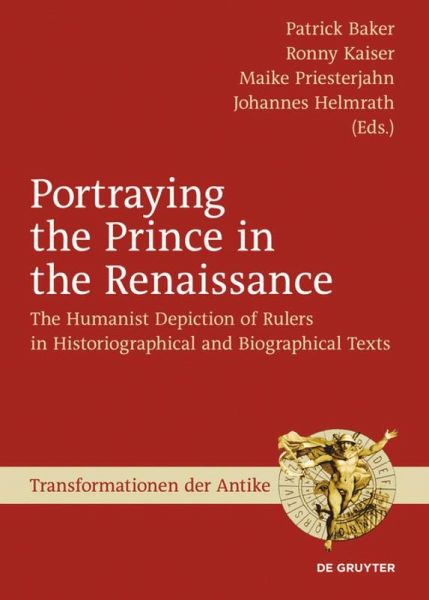
Portraying the Prince in the Renaissance
The Humanist Depiction of Rulers in Historiographical and Biographical Texts
Herausgegeben: Baker, Patrick; Kaiser, Ronny; Priesterjahn, Maike; Helmrath, Johannes
Versandkostenfrei!
Versandfertig in 6-10 Tagen
99,99 €
inkl. MwSt.

PAYBACK Punkte
50 °P sammeln!
The portrayal of princes plays a central role in the historical literature of the European Renaissance. The sixteen contributions collected in this volume examine such portrayals in a broad variety of historiographical, biographical, and poetic texts. It emerges clearly that historical portrayals were not essentially bound by generic constraints but instead took the form of res gestae or historiae, discrete or collective biographies, panegyric, mirrors for princes, epic poetry, orations, even commonplace books - whatever the occasion called for. Beyond questions of genre, the chapters focus on...
The portrayal of princes plays a central role in the historical literature of the European Renaissance. The sixteen contributions collected in this volume examine such portrayals in a broad variety of historiographical, biographical, and poetic texts. It emerges clearly that historical portrayals were not essentially bound by generic constraints but instead took the form of res gestae or historiae, discrete or collective biographies, panegyric, mirrors for princes, epic poetry, orations, even commonplace books - whatever the occasion called for. Beyond questions of genre, the chapters focus on narrative strategies and the transformation of ancient, medieval, and contemporary authors, as well as on the influence of political, cultural, intellectual, and social contexts. Four broad thematic foci inform the structure of this book: the virtues ascribed to the prince, the cultural and political pretensions inscribed in literary portraits, the historical and literary models on which these portraits were based, and the method that underlay them. The volume is rounded out by a critical summary that considers the portrayal of princes in humanist historiogrpahy from the point of view of transformation theory.


